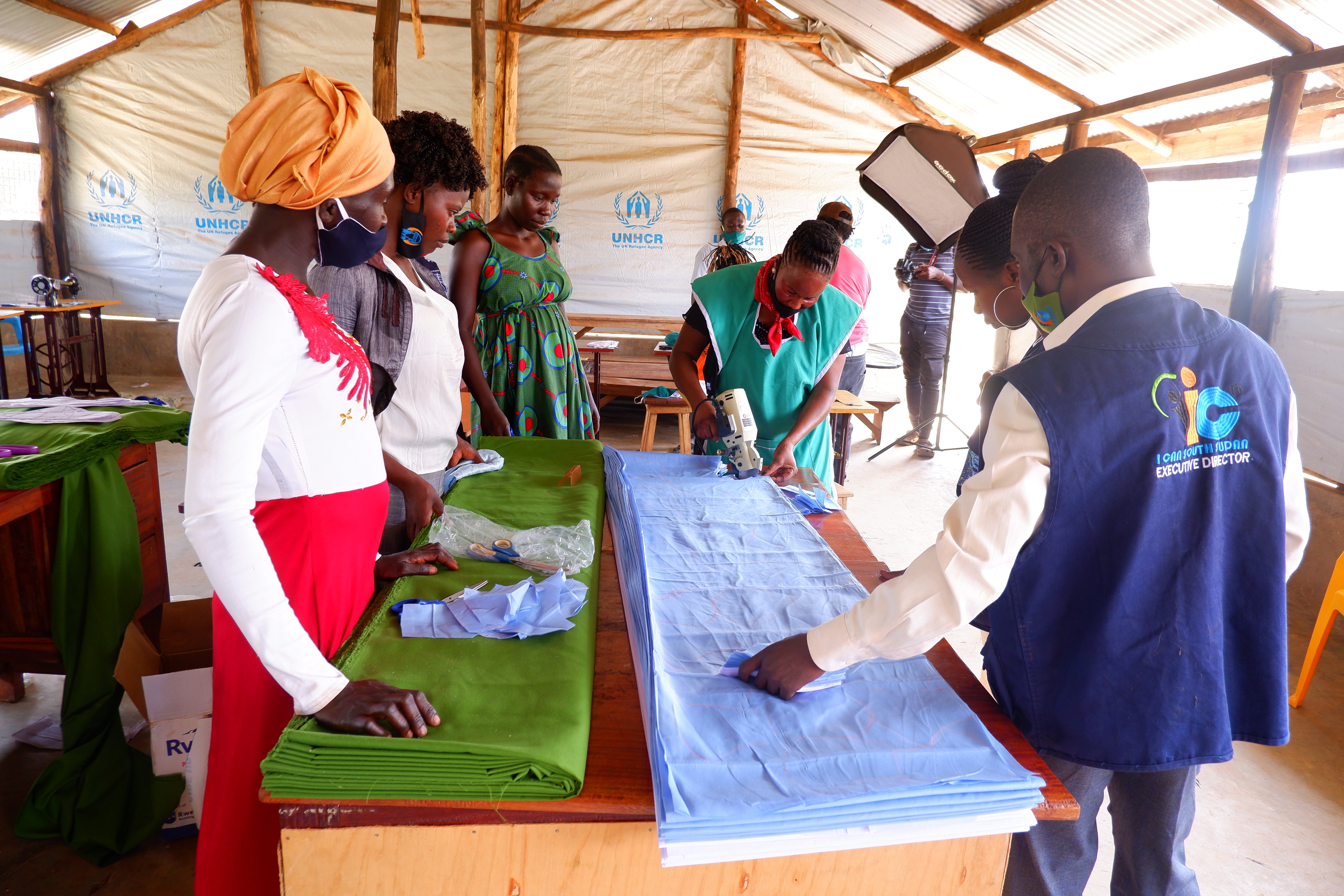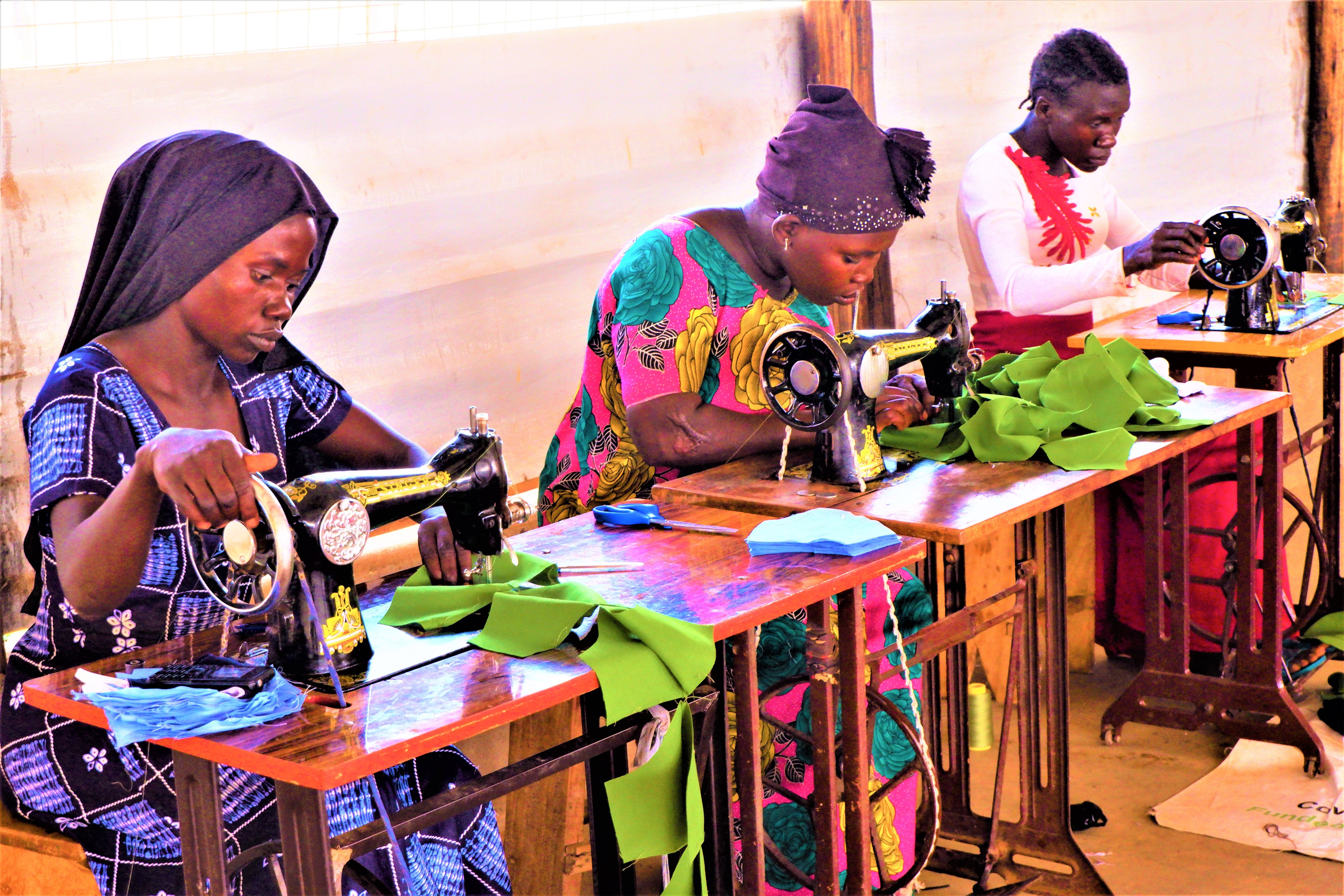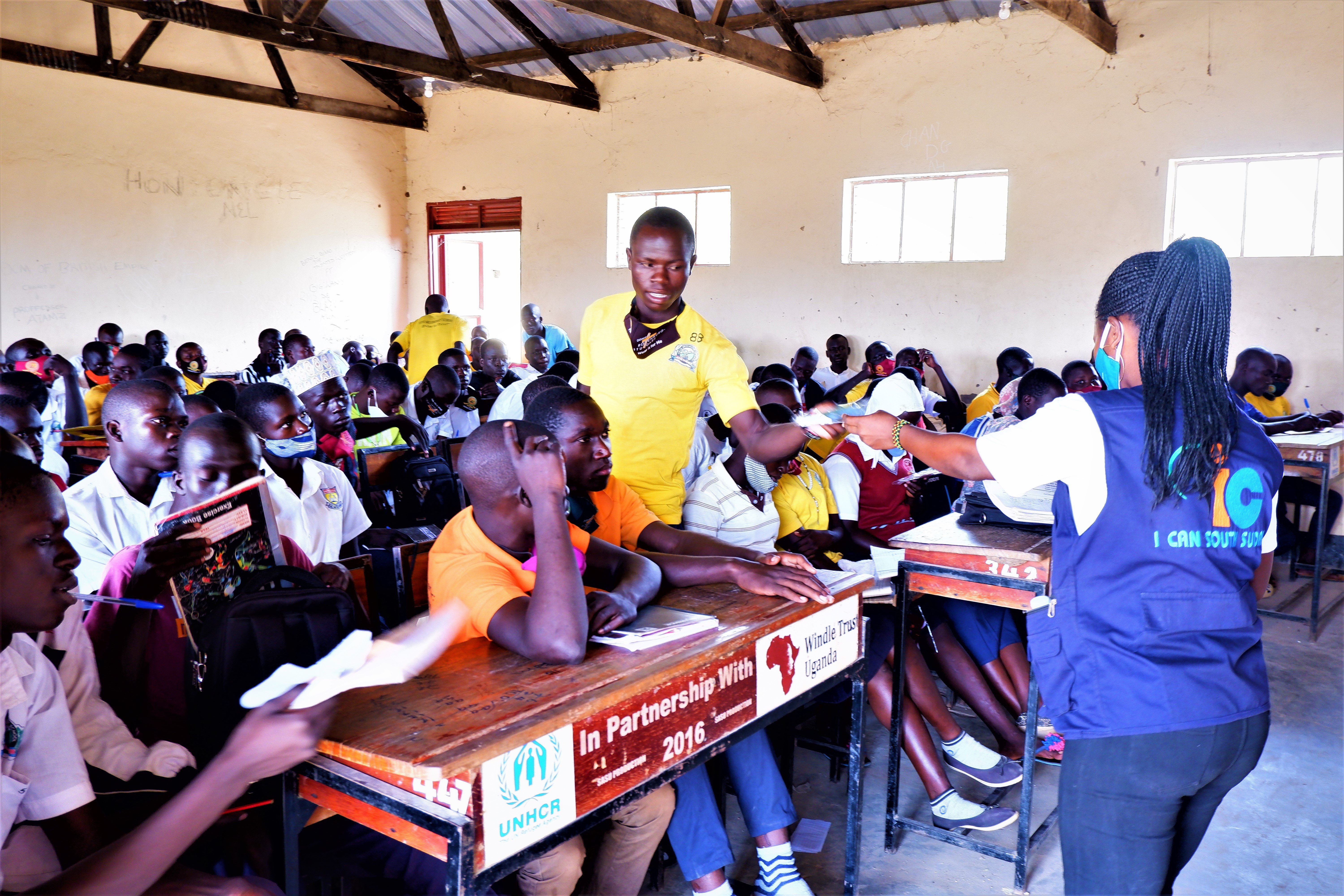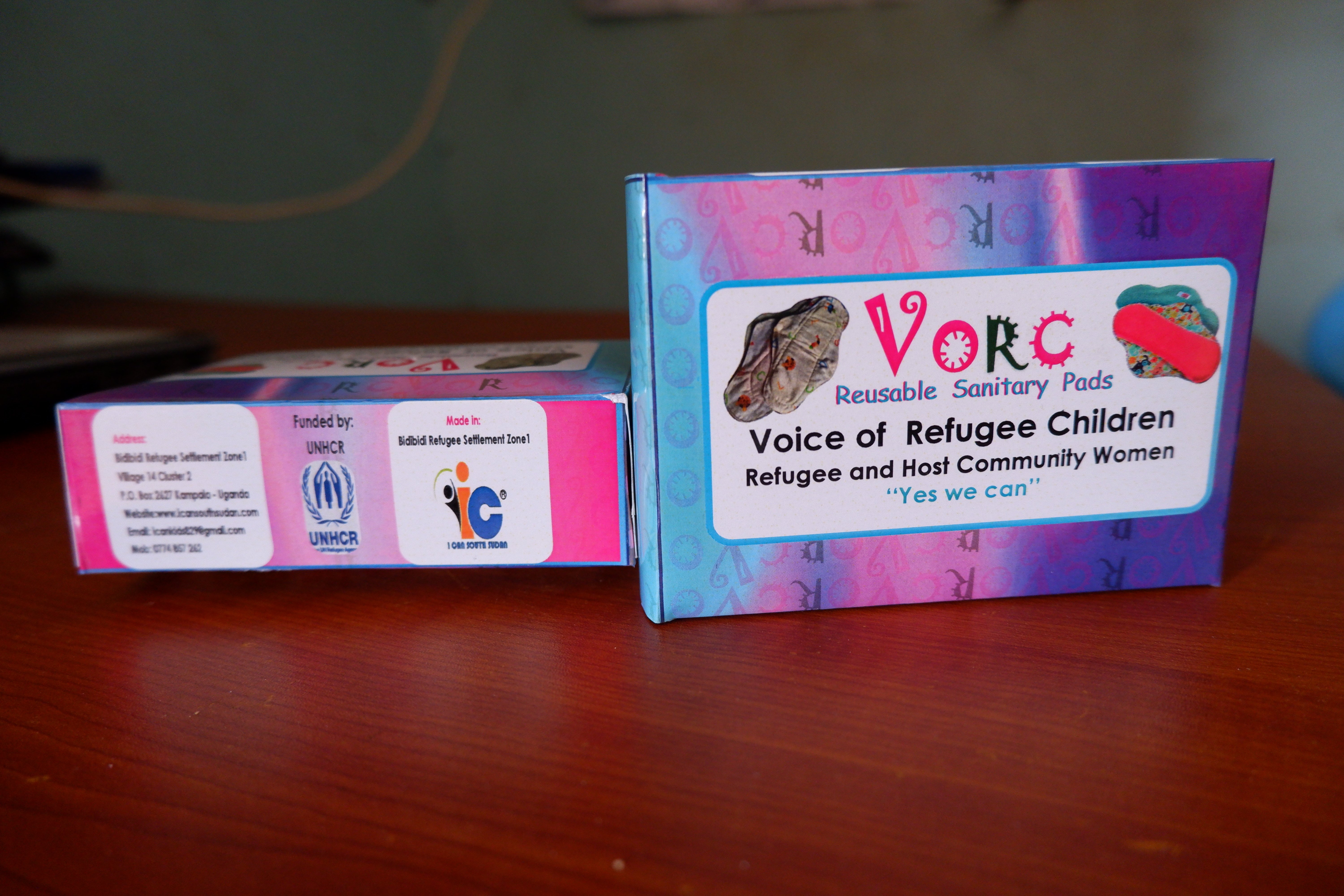Production of 3,307 Face Masks and 390 Reusable Sanitary Pads and distribute them to schools

With funding from UNHCR, we produced 3,307 Face Masks and 390 Reusable sanitary pads and distribute them to Yoyo Secondary school in Bidibidi Zone 3, Highland Secondary School in Zone 2, Valley View Secondary School in Zone 1, to partners and I CAN Children to keep the school protected against Covid-19
Overall impact of the project:
- Short-term
- Talking to the women after the training and production, the women had the following to say
- Seven (7) of the women responded that they have gained 80% knowledge of the training and they can be able to open up their own business to make face masks and reusable sanitary pads and sell to earn living and only three(3) of the women said they have gained 60% of the knowledge and they are capable of producing the face masks and reusable sanitary pads
- 80% of the women engaged were mainly depending on food ration for survival and could not sustain the food ration for the duration it is given for but with this training, they have started generating daily income which can sustain the food ration they receive and help them provide basic needs of the family and provide scholastic material for their children.
- Both the women from refugee and host community reported that they had good relationship with the refugee community but there existed conflict over resources but their time together during the training and production has made them to understand each other perception and hence this has created friendship and better understanding between them and the host community.
- 3,307 face masks are produced and distributed to two secondary schools, partners, I CAN Children and staff to mitigate the effect of Covid-19 and other diseases among the community
- 390 Reusable Sanitary pads are produced to be distributed to the girls at schools which provide them comfort to stay in class during their menstrual period and reduce the possibility of them asking for support from men who may take advantage of them
- The organization has come up with a Brand Name for the women products called VORC an abbreviation standing for (Voice of Refugee Children) which will give identity to both the refugee and host community joint products and allow them to sell in Uganda and East Africa at large once this products are verified and certified by Uganda National Bureau of Standards
- The one on one counselling and use of music at the production site has relieved the women of trauma
- Long-term
- The knowledge acquired will help the women and youth in the refugee settlement and on return to South Sudan to restart life
- This will create decent job for the vulnerable women that will generate income for them to provide the daily needs of their children and they will become self reliant
- This will promote peaceful coexistence among refugees and between refugees and host community
- The new Brand upon Certification by UNBS can bring market to the products produced locally by refugees and host community and hence this can grow into a company that will create jobs and income for refugees and host community and hence reduce poverty
Lessons Learned:
- The production of reusable sanitary pads is a quite new among the women and they showed much interest in learning it than the face mask production
- We learnt also that for the women to work effectively and quickly they need motivational allowances and this should be in piece work (Paid based amount of work produced)
- We learnt that there is need to have a contingency budget for maintenance of machines used in the production
- We have realized during our distribution that only 910 girls were found in secondary Secondary school during distribution in comparison to 2,014 that were found at school during distribution and hence there is need to understand why many girls are not in school.
- Out of 2,935 students found in secondary school at the time of distribution, only 317 were nationals and hence there is need to understand why few nationals are attending schools in the refugee settlement
- Achievements:
- We have been able to bring the women together, given them knowledge and created a conducive environment for counselling and healing
- We produced 3,307 face masks, surpassing the target of 3,000 face masks initially planned
- We have created a new brand for the women products and have beautifully branded the products and this is acceptable by the community
- We have produced 390 reusable sanitary pads which is highly needed by the returning school girls
- Most of the women have reported 80% of knowledge and skills in the area we trained them in
- Most women have reported change in their life and in relationship among the community which was our target
- Challenges:
- Late reception of funds which had put us in tight deadline to deliver but we congratulate our workforce for the great work done in the shortest period
- Difficulty in accessing electric power for the face mask cutting machine
- Lack of transport facility for logistical support in the organization
- Breakdown of sewing machines during the production of the items
- The cold weather in the morning could not allow women turn up so early for the work and hence there was late arrival in the morning
- Breakdown of office printer and our solar power delayed printing and the few numbers of computers in office could not allow staff work in time on the reports as other staff had to wait to use the shared computer
- Budget Constraint could not allow us get the best quality materials for production and allow us engage the number of women previously targeted. This also made us to change initial planned activities of making Milaya as we could not afford the machines for making Milaya and printing on the face masks
- Future Opportunities:
Below are recommendations given by the women during our monitoring and evaluation session with them:
- More of this training need to be done to women in the settlement to empower the women and a start up capital be given for the women to start up business on their own
- More women need to be added to the training because the settlement is big and more women are in need of this opportunity
- I CAN South Sudan need to open up a market for the women and help the women work together in group
- The training should be extended to women with disability




Comments


